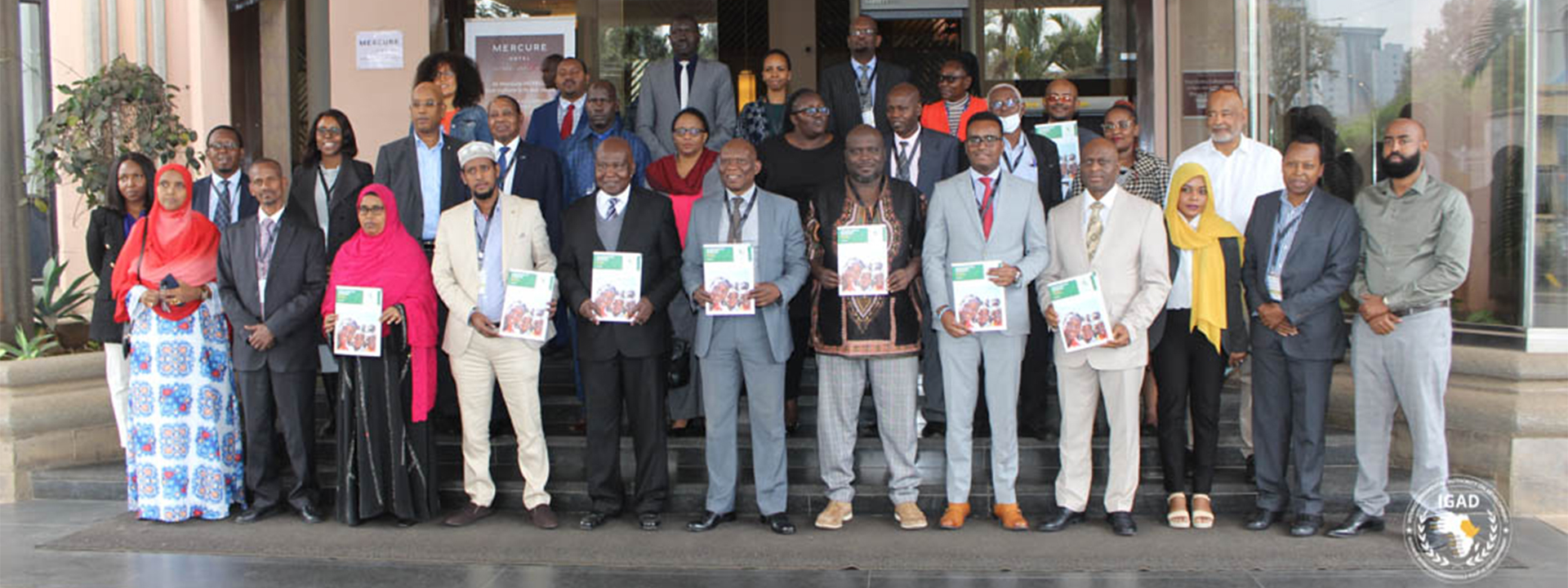September 15, 2022 (NAIROBI, Kenya): The Intergovernmental Authority on Development (IGAD) today launched the IGAD Regional Trade Policy 2022-2026 in Nairobi.
Representatives of IGAD Member States from Ministry of Trade and Heads of Chamber of Commerce and Industry, representatives of partners such as the African Development Bank (AfDB), and the Pan-African Chamber of Commerce and Industry (PACCI) attended the one-day event.
In his opening remarks, the Head of mission in Kenya Dr Fatuma Adan said “As trade integration remains a strategic goal for us as a regionally and continent-wide, we need to think about fragmented markets, reform our trade facilitation measures and remove all tariff and non-tariff barriers, as well as improve our policies, procedures and regulation across borders to allow for flexible movement of people, goods, services and capital.”
By launching the IGAD Regional Trade Policy, IGAD aims to raise awareness about its instruments and how to use them in the context of IGAD Member States along the way of aligning all trade-related policies to AfCFTA as a continental flagship.
The launch will also be an opportunity to brief the participants about how trade environment can be improved through policy instruments, to share update on trade status, investments, and projects at member state level, and to share update on trade logistics, facilitation and potentials of public-private partnerships between public and private entities
The IGAD Regional Trade Policy’s vision is to foster market-driven, development-oriented, and sustainable trade in the IGAD region, capable of catalysing expanded economic growth, reducing poverty, ensuring food security and attaining improved living standards in the region.
The corresponding overarching objective of the Policy is to promote sustainable growth and development of the IGAD Member States by raising the standard of living of their people through closer economic integration. This is broken down into specific objectives, i.e. to create an open and unified regional economic space to boost intra-IGAD trade by creating the necessary enabling environment and removing obstacles for trade in goods and services; to create coherence among national trade policies of IGAD Member States; to help IGAD Member States implement their obligations arising from regional trade agreements, in particular the AfCFTA; and to promote creation of an enabling environment for foreign and domestic investment.
The launch will be followed by a training on September 16th on Trade along IGAD Corridors under the theme Trade Facilitation, Logistics, and Business Environment Issues.

